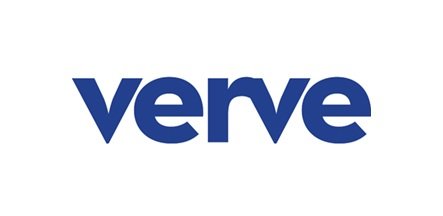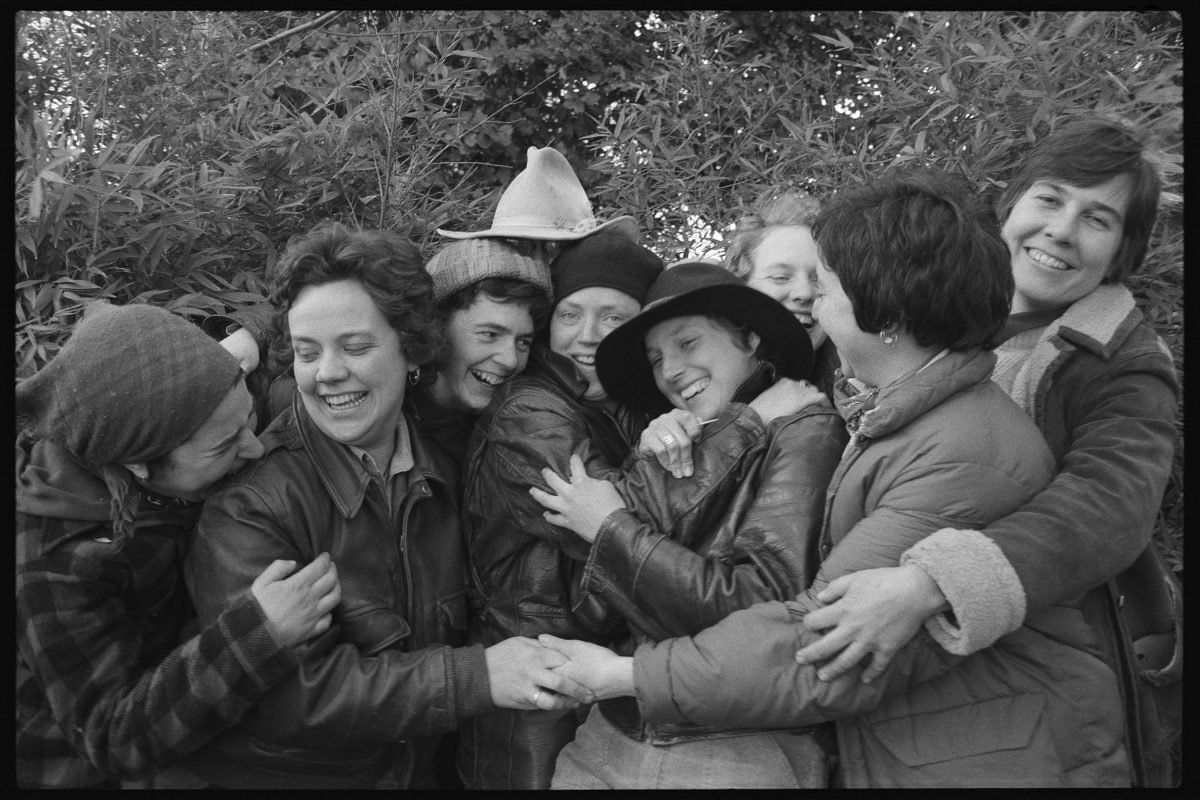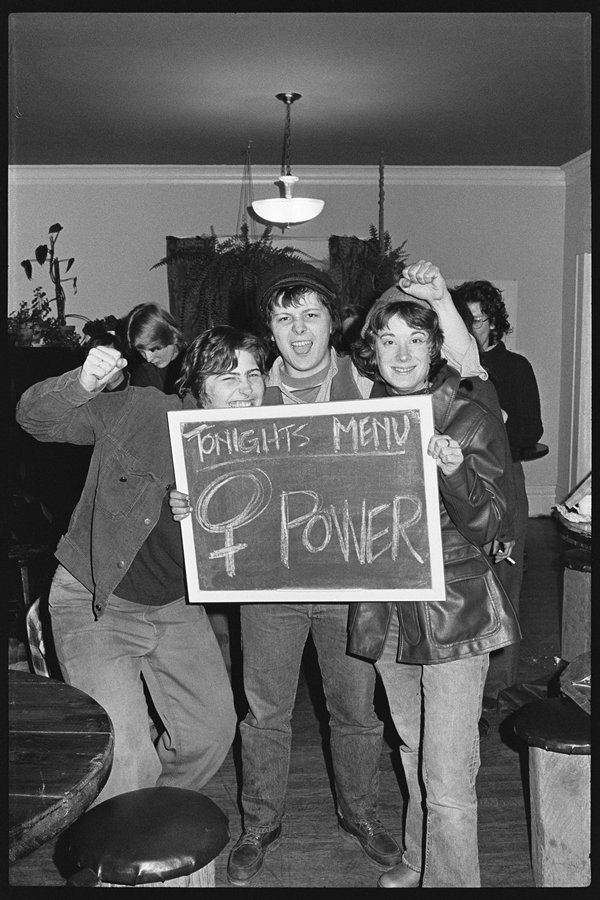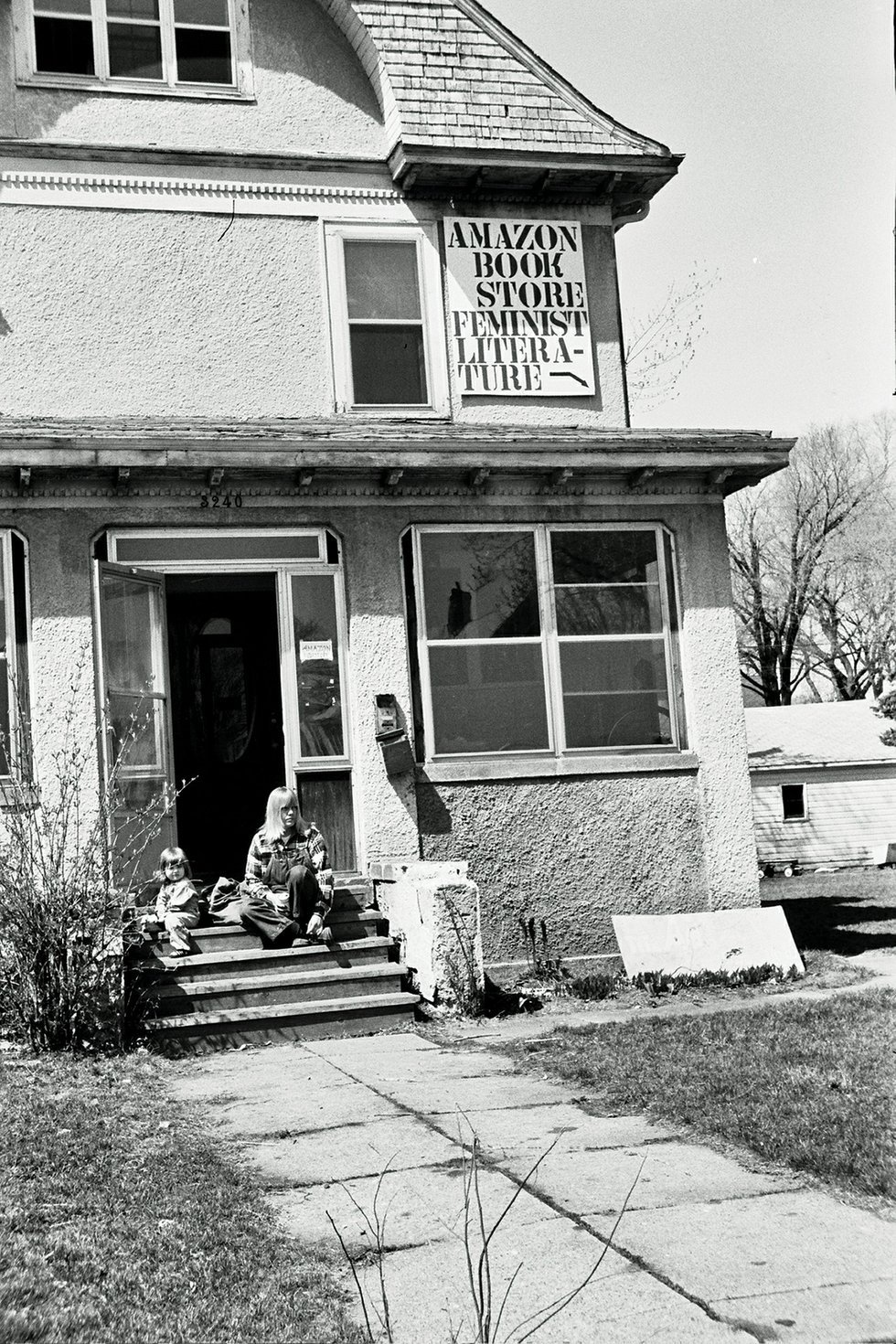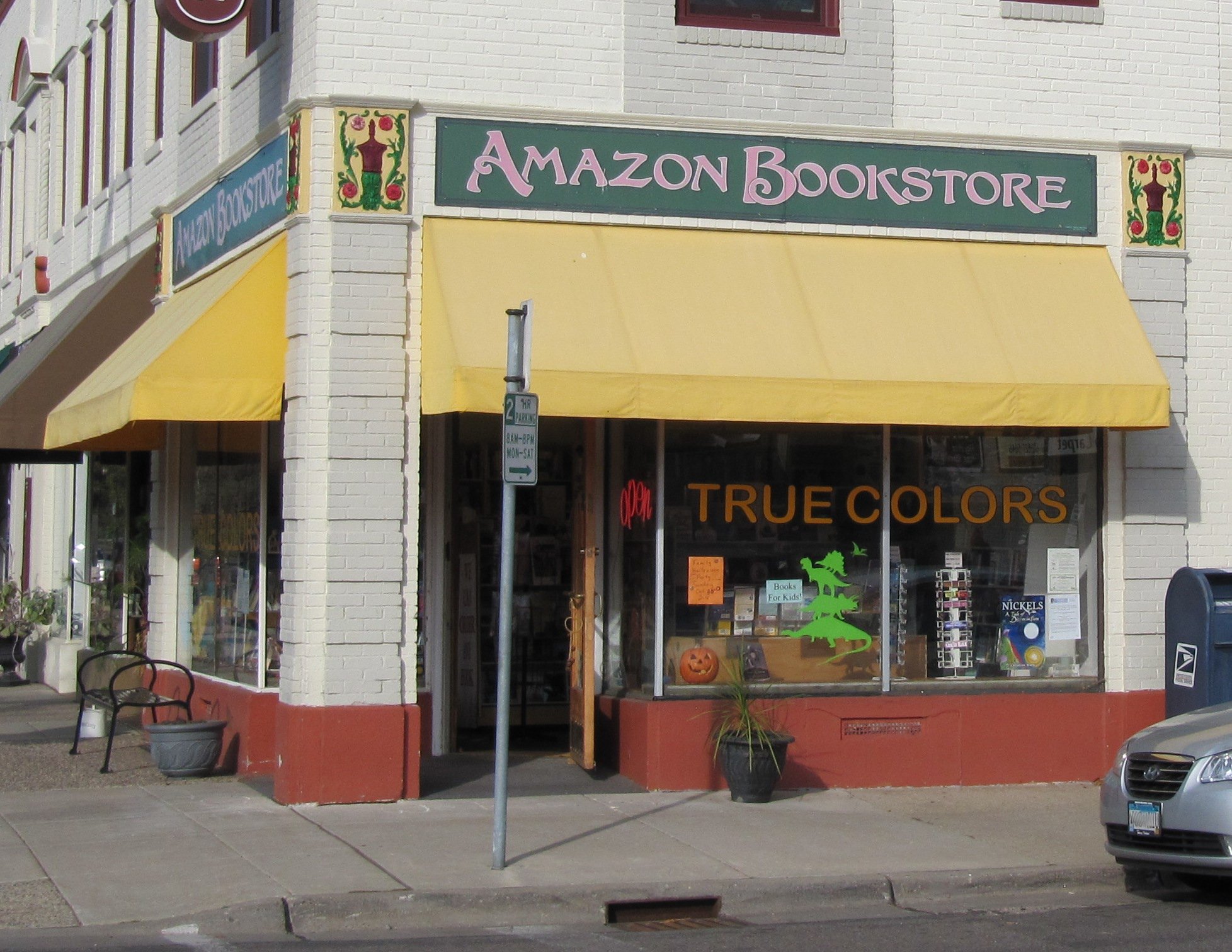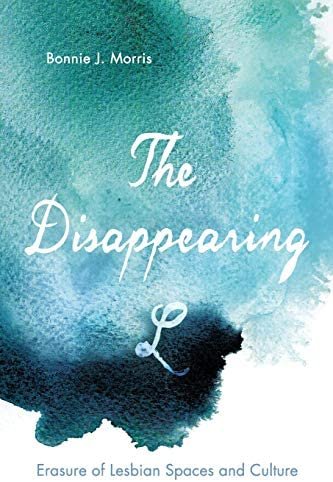Lisa Vecoli - Sisters Are Doing It For Themselves
/Archivist and historian, Lisa Vecoli. Photo by Tracy Nordstrom
Imagining a future ripe for vibrant storytelling, archivist and historian Lisa Vecoli collects personal narratives from women whose work and perspectives are vital to understanding the spunk of the Twin Cities and the state of Minnesota.
Part solemn historian, part plucky cheer squad captain, Lisa exudes an unabating pride for the many ways her hometown leads the nation for equality on Lesbian, Gay, Bisexual, Transgender (LGBT) issues. She is on a personal quest to collate those stories and merge them, unequivocally, into the dominant narrative of place. If anyone asks, Lisa has a Power Point presentation at the ready to illustrate some of her favorite Minnesota firsts, including:
First lesbian feminist bookstore* (1970 - Amazon Bookstore Cooperative, Minneapolis)
First legal gay marriage (1971 - Jack Baker and Michael McConnell)
First transgender-inclusive non-discrimination laws (Minneapolis in 1975; State of Minnesota in 1993)
Early openly gay elected official (Senator Allan Spear of Minneapolis; first elected to the Minnesota State Senate in 1972)
Bisexual Organizing Project, one of only six in the country dedicated to bisexual organizing (founded 1999)
LGBT Activism Buttons. Photo by The Tretter Collection
As historian and trend-setter, Lisa is keen to add another “first” to that lineage: her self-directed Minnesota Lesbian Community Organizing Oral History Project, a project that will celebrate ahead-of-its time activism by Minnesota lesbians in the 1970’s and 80’s. Lisa has begun the work of collecting first-person stories from the women who made history and made community by making space for each other.
Lisa lights up as she recalls what was happening in the Twin Cities at the time. “The 70’s and early 80’s were a time of optimism and hope,” she says. “Women felt ‘We can fix our challenges,’” and, she recounts, there were “waves and waves and waves” of lesbian activists righting societal deficits and writing grants to fund community organizing and publish journals (with titles like So’s Your Old Lady and Lesbian Insider, Insighter, Inciter); and women organizers who opened coffee houses, music venues, and bookstores (such as Amazon Cooperative), creating lesbian-centered places to gather, dance, fortify causes, find familiarity, and simply, to “feel normal.”
On a trajectory herself from feeling normal to feeling triumphant, Lisa is driven to document lesbian achievement in the Twin Cities for both personal and community reasons. Personally, Lisa is excited to share stories of women who blazed trails for lesbians in Minnesota and set the stage for her own illumination and professional work as both social change agent and archivist. “My experience of being a Lesbian Feminist – I came out in 1981, I was second generation,” Lisa says, was that “social justice and sexual identity were front and center.” She remembers her heroes working not solely on “lesbian” issues, but on the intersection of isms – classism, sexism, racism – that existed to the detriment of society. Lisa’s assessment of the Twin Cities and the women’s activism is clear: “This was one of the first places that really tried to center a conversation around how we could make change around all those issues.”
Like the change-champions of their day, this modern-day archivist feels a sense of urgency to build out the Oral History Project. Lisa began the Project in earnest after she retired as Curator of the Jean-Nickolaus Tretter Collection in GLBT Studies at the University of Minnesota in 2018. Building a more inclusive collection at Tretter, along with a 2016 book called The Disappearing L: Erasure of Lesbian Spaces and Culture by Bonnie J. Morris, changed Lisa’s thinking. In The Disappearing L, Morris presents the idea that lesbians face a “cultural expiration date” as time passes, as early activists die, and as new generations of LGBTQ+ folk reinvent themselves. Lisa accepts the generational shifts, but notes that even the term “lesbian” is used less frequently in community these days. That worries her: “I don’t want contemporary critiques to overwhelm what I thought was valuable and important at the time. As people assess the history of Lesbian Feminism, I want them to hear from the women who were doing it,” she says. “I want those women, upon whose shoulders I stand, to have their day: This is what we did; this is what we are proud of.”
Despite a “shoestring budget” and conducting all the interviews on her own, Lisa has furnished the project through a small grant with good audio equipment, a couple of trusty assistants, a volunteer technology consultant, and a long list of lesbian trailblazers who already have sat for interviews or enthusiastically promise to contribute their perspectives to her collection. To date, Lisa has conducted 27 interviews, each 90 minutes in length. She is amassing audio, video, and written transcriptions, and has indexed each interview with a content abstract aimed at future researchers and historians. Lisa allows that these primary sources are valuable and interesting to the general public, too, and just might end up fueling a documentary, podcast, or book. “It doesn’t have to be one or the other,” she concedes, noting that different audiences (and generations) favor different media. Lisa admits that SHE might be the one to write the book or produce the film about these amazing women. “I don’t know. I have never written a book. It might be me. I don’t really know,” she offers with uncharacteristic uncertainty. On the value of collecting the foundational testimonials, however, she is clear. To punctuate her point, Lisa offers a confident flourish of self-determinism: “If I don’t do it, it won’t exist.”
One interview, in particular, in the Minnesota Lesbian Community Organizing Oral History Project demonstrates how remembering and re-telling what happened can be transformative for the teller as well as the listener. Lisa describes her discussion with visionary Karen Browne-Courage of Minneapolis, a founder of the Lesbian Resource Center (founded in 1972):
Karen rented a storefront [for the Lesbian Resource Center] when she didn’t even know if the phone company could list ‘Lesbian’ in the phonebook. She ran it for 2 years, then left. She spent a lot of her life - 47, 48 years - feeling like she had failed because she had to leave.
When I asked her for an interview, it was touchy because she had some hard feelings. I set up 2 interviews, and I sent her newsletters [from the Resource Center] they compiled. She told me, “I was a kid, and I left, and I felt a sense of failure. But it continued. It didn’t fail. In fact, I did this really wonderful thing.
The emotional potency of having a subject talk about, and claim, her experience as a lesbian organizer is one reason Lisa continues to interview and curate artifacts for the Oral History Project. “Finally,” Lisa assesses, Karen Browne-Courage “proudly talked about it. The process of being asked to tell her story gave her the opportunity to re-frame her story. She earned pride and satisfaction. If I never do another interview, the project has been worth it.”
That one interview, with one extraordinary woman, compels Lisa to keep going, even though some may question the point of so much work now for the benefit of some unknown historian or curious community member in the future. “With this project,” Lisa admits, “I have seen the power of one.” She beams: “You can do something like this and leave a record. It could be small. I want to record an important story.”
Ultimately, Lisa knows that good storytelling has no “cultural expiration date.” She encourages all would-be historians to consider the stories they know that haven’t been told fully. Lisa advises: “You might think, ‘Who would want my stuff?’ Well, you can add a perspective. You don’t have to do a million interviews, you can do one of a category, a geography, a time. These all matter.”
Resources:
Minnesota Lesbian Community Organizing Oral History Project: https://www.facebook.com/pages/category/Community/Minnesota-Lesbian-Community-Organizing-Oral-History-Project-MLCO-110224770317964/
Vimeo on Project: https://vimeo.com/370943259
Lisa Vecoli: https://www.linkedin.com/in/lisa-vecoli-47b6205/
The Jean-Nickolaus Tretter Collection in Gay, Lesbian, Bisexual and Transgender Studies: https://www.lib.umn.edu/collections/special/tretter
* Amazon Book Cooperative is listed as the “First lesbian bookstore in the US” by both Wikipedia and The Historyapolis Project. MinnPOST called Amazon “The oldest feminist bookstore in the country” when it closed (after 38 years) in 2008. Lisa amends her original Power Point list of firsts and acknowledges that Amazon, today, might more accurately be called “One of the first lesbian bookstores in the US.” Still, pretty great!
Photos Credits:
Photos of Lisa Vecoli by Tracy Nordstrom
Photos in slideshow (black and white images) from Meadow Muska, a Minnesota photographer and lesbian who documented lesbians in Minnesota during the 1970’s. Images: “Tonight’s Menu: WOMAN POWER!” from 1976; “Tradeswomen: Get Serious!” from 1976
Amazon Bookstore storefront, 2 eras: Minnesota Monthly
LGBT Activist / Political Buttons: The Tretter Collection
